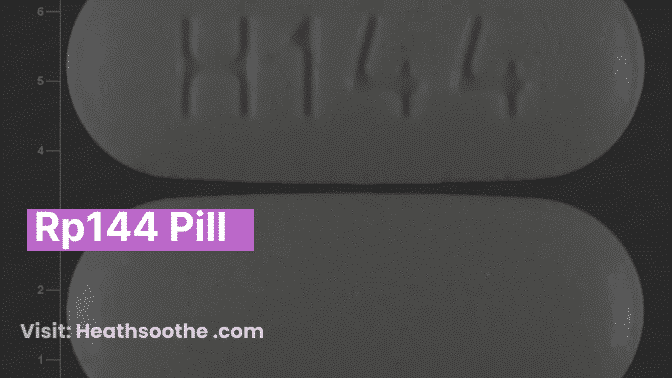Methocarbamol is employed to alleviate muscle spasms and pain. It is typically complemented by rest, physical therapy, and other forms of treatment. Its mechanism involves assisting in muscle relaxation.
Here's how to properly utilize Methocarbamol:
Administer this medication orally, with or without food, following the instructions of your doctor. Do not amplify your dosage or employ this drug more frequently or for an extended duration than prescribed. Accelerating your recovery is not achieved by doing so, and the likelihood of encountering side effects is heightened.
The appropriate dosage hinges on your medical condition and how you respond to the treatment.
Notify your doctor if your condition fails to ameliorate or if it deteriorates.
Can methocarbamol help with tooth pain?
It has the capacity to alleviate toothache, ear pain, backache, and other discomfort stemming from musculoskeletal issues. Methocarbamol functions as a muscle relaxant by obstructing the transmission of pain signals (nerve impulses) directed to the brain.
Side effects
Drowsiness, dizziness, lightheadedness, stomach discomfort, nausea/vomiting, or blurred vision might occur. Should any of these effects persist or worsen, promptly inform your doctor or pharmacist.
Keep in mind that your doctor has prescribed this medication because they have determined that the benefits outweigh the potential side effects. Numerous individuals using this medication do not experience severe side effects.
If you encounter any severe side effects, such as unending nausea/vomiting, fainting, slow heartbeat, yellowing of the eyes/skin, or alterations in mental/mood (such as confusion, and forgetfulness), promptly notify your doctor.
A highly uncommon but very serious allergic reaction to this drug may transpire. Seek immediate medical assistance if you detect any symptoms indicative of a severe allergic reaction, like rash, itching/swelling (particularly of the face/tongue/throat), intense dizziness, or difficulty breathing.
This compilation of side effects is not exhaustive. If you notice other effects not mentioned here, reach out to your doctor or pharmacist.
Warnings for Methocarbamol Oral Tablet:
Allergy Warning: Methocarbamol has the potential to trigger a severe allergic reaction. Symptoms may encompass:
- Skin rash
- Hives
- Difficulty breathing
- Swelling of the throat or tongue
If signs of an allergic reaction occur, promptly contact your doctor or local poison control centre. For severe symptoms, call 911 or seek immediate medical attention. Avoid re-administering this medication if you have previously experienced an allergic reaction, as this could result in a fatal outcome.
Alcohol Interaction: Consuming alcohol can intensify the sedative effects of this medication. If you consume alcohol, consult your doctor.
Warnings for Individuals with Specific Health Conditions: For those with liver disease: Methocarbamol is metabolized by the liver. In cases of liver disease, the drug may accumulate in the body, elevating the risk of side effects. Your doctor might initiate a lower dose or adjust the dosing regimen.
Read Also: Intuniv ER Oral: Uses, Side Effects, Interactions, Pictures
Other Warnings: For Pregnant Individuals: Methocarbamol is classified as a category C pregnancy drug. This signifies:
- Animal studies have demonstrated adverse effects on the fetus when the drug is taken by pregnant mothers.
- Sufficient human studies are lacking to fully ascertain the drug's impact on the fetus.
Consult your doctor if you are pregnant or planning to become pregnant. The decision to use this medication during pregnancy should be weighed against the potential risks.
For Breastfeeding Individuals: Methocarbamol can potentially pass into breast milk, leading to side effects in nursing infants. If you are breastfeeding, consult your doctor. You may need to choose between discontinuing breastfeeding or halting the use of this medication.
For Seniors: Older adults might experience decreased kidney function, causing drugs to be processed more slowly in the body. This could lead to elevated drug levels and a higher risk of side effects. To prevent excessive drug accumulation, your doctor may recommend a lower dose or an adjusted dosing schedule.
For Children: This medication is not suitable for individuals under 16 years of age.
Precautions
Before commencing methocarbamol, inform your doctor or pharmacist if you have an allergy to it or any other allergies. This product might include inactive ingredients that can provoke allergic reactions or other complications. Consult your pharmacist for further information.
When considering the use of this medication, disclose your medical history to your doctor or pharmacist, particularly if you have a history of liver disease.
This drug might induce dizziness, drowsiness, or blurred vision. Alcohol or marijuana (cannabis) can intensify these effects. Abstain from activities requiring alertness or clear vision, such as driving or operating machinery, until you can do so safely. Refrain from consuming alcoholic beverages. If you are using marijuana (cannabis), discuss this with your doctor.
Before undergoing surgery, notify your doctor or dentist of all products you are using, including prescription drugs, nonprescription drugs, and herbal products.
Elderly individuals could be more susceptible to the side effects of this drug, especially confusion, dizziness, or drowsiness. These side effects can elevate the risk of falling.
In pregnancy, employ this medication solely if deemed essential. Engage in a discussion with your doctor about the potential risks and advantages.
The transmission of this drug into breast milk remains uncertain. Prior to breastfeeding, consult your doctor for guidance.
Interactions
Interactions with other drugs can alter how your medications function or heighten the risk of serious side effects. This document does not encompass all potential drug interactions. Maintain a record of all products you use, including prescription/nonprescription drugs and herbal items, and discuss this information with your doctor and pharmacist. Refrain from initiating, discontinuing, or modifying the dosage of any medications without your doctor's authorization.
Notify your doctor or pharmacist if you are consuming other substances that induce drowsiness, such as opioid pain or cough relievers (like codeine, hydrocodone), alcohol, marijuana (cannabis), medications for sleep or anxiety (such as alprazolam, lorazepam, zolpidem), additional muscle relaxants (like carisoprodol, cyclobenzaprine), or antihistamines (like cetirizine, diphenhydramine).
Examine the labels of all your medicines, such as allergy or cough-and-cold products, since they may encompass components that induce drowsiness. Consult your pharmacist about the secure utilization of these products.
This medication might interfere with specific lab assessments, like the VMA or 5-HIAA urine screening test, potentially yielding inaccurate test outcomes. Make certain that lab staff and all your medical practitioners are aware of your use of this drug.
Dosage
If you forget a dose, take it as soon as you recall. If it's close to the time for your next dose, skip the missed one and adhere to your regular schedule. Avoid taking a double dose to compensate.
For storage, keep it at room temperature, safeguarded from light and moisture. Refrain from storing in the bathroom. Ensure that all medications are out of reach of children and pets.
Adult Dosage (ages 18-64 years):
- Initial dose: Begin with 6,000 mg per day, divided into four doses of 1,500 mg each.
- Maintenance dose: Take 4,000–4,500 mg per day, split into 3 to 4 separate doses.
- Dose adjustment: Your doctor might initiate a higher dose for the first 2–3 days, followed by a reduction to around 4,000 mg per day.
Child Dosage (ages 16–17 years):
- Initial dose: Start with 6,000 mg per day, spread across four doses of 1,500 mg each.
- Maintenance dose: Take 4,000–4,500 mg per day, distributed into 3 to 4 divided doses.
- Dose adjustment: Your doctor may introduce a higher dose for the initial 2–3 days, then lower it to approximately 4,000 mg per day.
Child Dosage (ages 0–15 years):
- Methocarbamol's safety and effectiveness in individuals under 16 years old have not been confirmed.
Senior Dosage (ages 65 years and older):
- Due to potential decreased kidney function in older adults, the body might metabolize drugs more slowly. This can lead to higher drug levels and an increased risk of side effects. Your doctor may start you on a lower dose or a modified dosing schedule to prevent excessive drug accumulation in the body.



